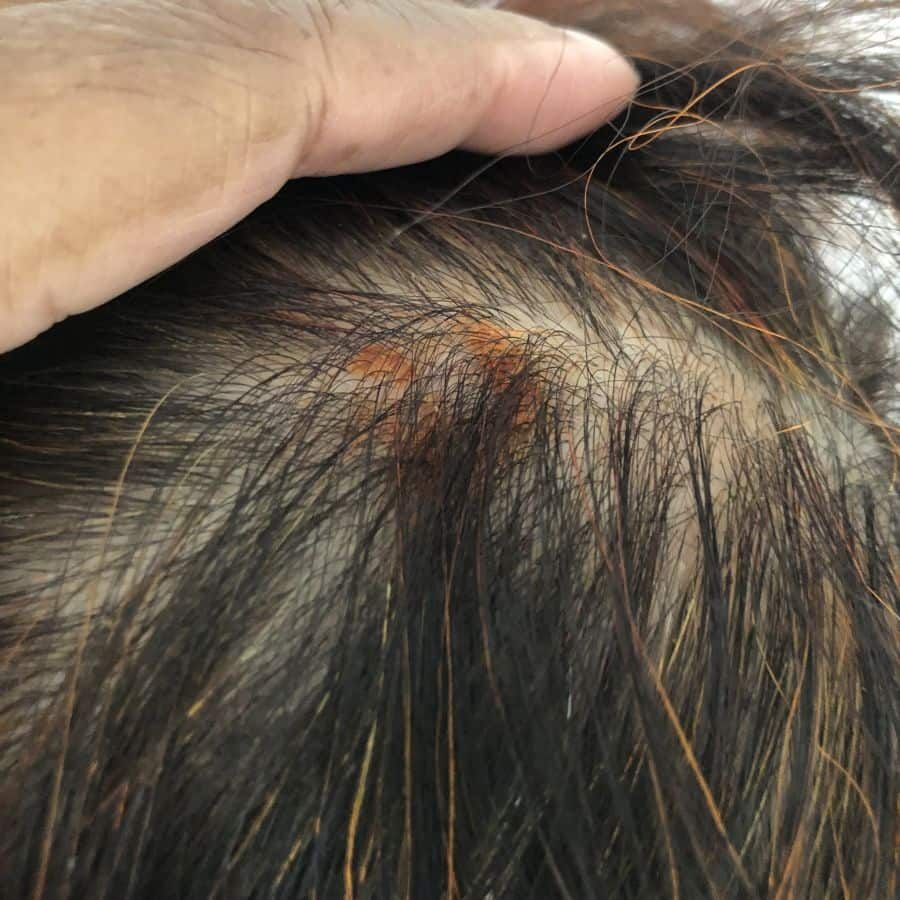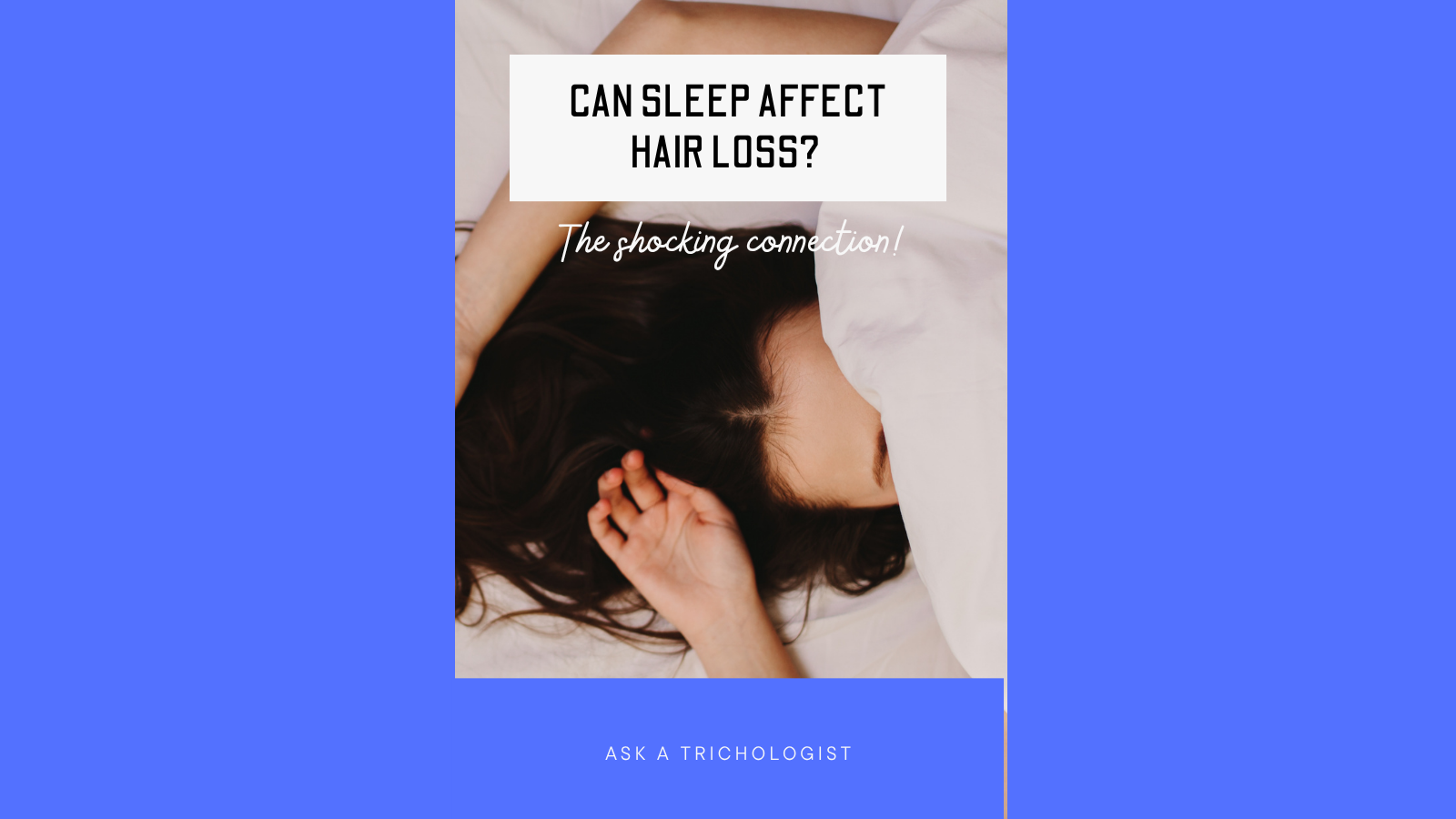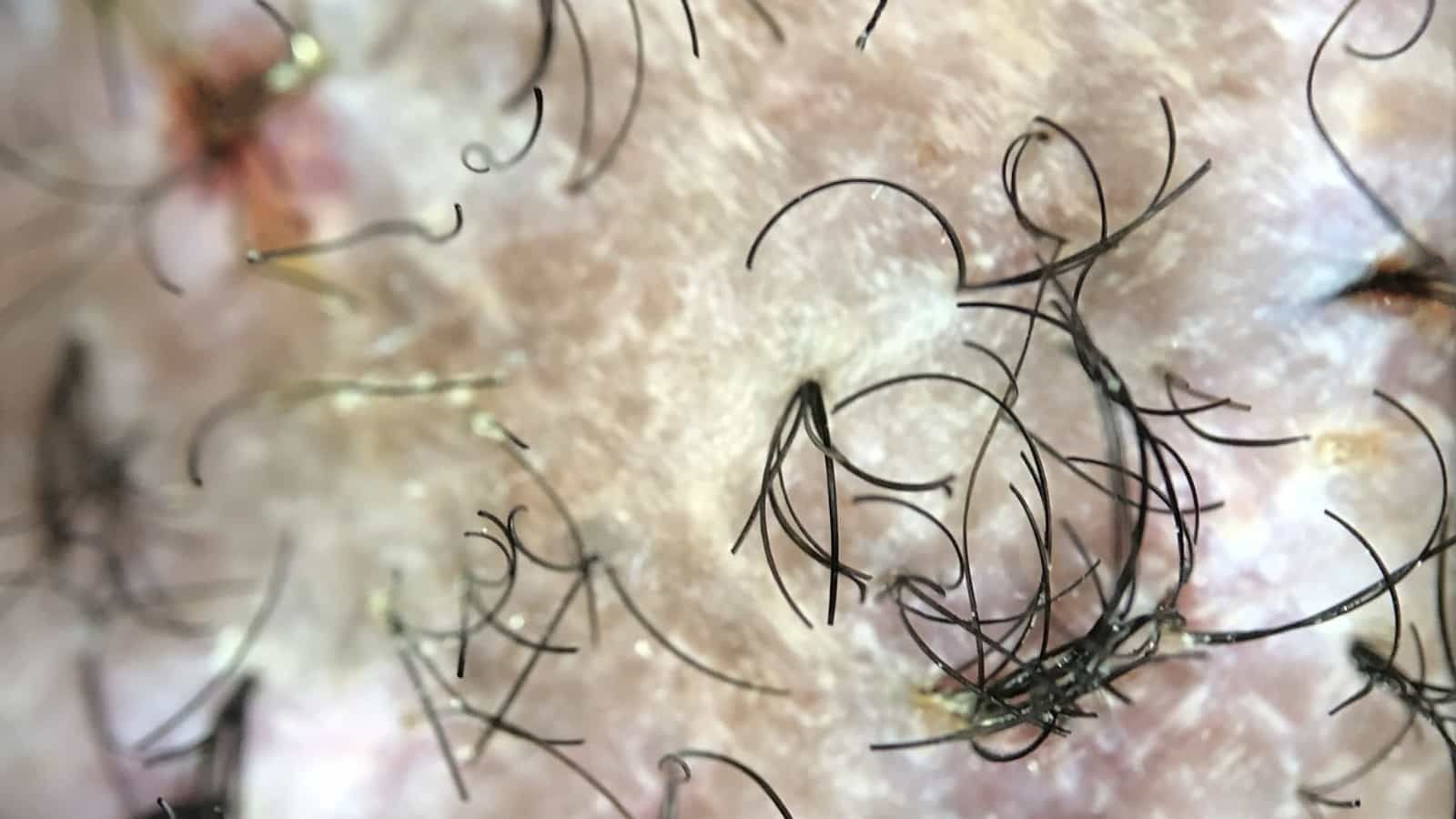Common Scalp Problems & What They Mean

Common Scalp problems you may be experiencing
If your scalp feels tight, itchy, or uncomfortable, or you've noticed unusual shedding or visible flakes, it's your body’s way of saying, "something's not quite right." As trichologists, we see every kind of scalp concern imaginable, from simple dryness to more complex inflammatory conditions. The good news? Most scalp issues are treatable once you understand what's really happening beneath the surface.
Let's look at the most common scalp conditions, what they mean, and when to seek professional help.
1. Dandruff - Why Is My Scalp Flaking?
Those tell-tale white flakes on your shoulders? That's dandruff - and it's far more common than you might think. It usually appears as white or yellow flakes and can sometimes be oily. The main culprits are an overgrowth of natural yeast on the scalp (Malassezia), excess oil, or irritation from hair products.
What helps?
Try a medicated shampoo, ingredients that calm irritation and rebalance your scalp's microbiome. If flakes persist, a trichologist can assess whether it's true dandruff or a similar condition like seborrhoeic dermatitis.
2. Dry Scalp - Why Does My Scalp Feel Tight or Itchy?
A dry scalp simply means a lack of moisture. The skin barrier becomes dehydrated, leading to irritation, fine white flakes, and that 'tight' feeling after washing. Cold weather, harsh shampoos, dehydration, or even overwashing can all strip your scalp's natural oils.
What help's
Gentle, sulphate-free shampoos, hydrating scalp oils, and less frequent washing. Hydrating hair products, oil treatments, and reduced shampoo frequency can help.
3. Oily Scalp - Why Does My Hair Feel Greasy So Quickly?
If your scalp feels greasy even a day after washing, your oil glands might be in overdrive. Hormones, diet, stress, and over-washing can all push the scalp to produce more sebum than it needs.
An overly oily scalp can result in greasy hair and clogged follicles. Over-washing, hormonal changes, and diet can contribute to excessive sebum production.
What helps
Use a balancing or clarifying shampoo, but don't overdo it. Over-cleansing actually encourages more oil production. Avoid heavy styling products that clog follicles. For persistent oiliness, your trichologist can assess whether hormones or scalp microbiota imbalance are to blame.
4. Scalp Acne - Why Am I Getting Spots on My Scalp?
Scalp acne appears as small bumps, spots, or pustules, often around the hairline or crown. It's caused by clogged pores, excess oil, and bacteria, often worsened by product build-up or tight hats.
What helps?
Maintaining scalp hygiene, using gentle exfoliation, and avoiding pore-clogging products can prevent scalp acne.
Keep your scalp clean but gentle: avoid heavy conditioners at the roots and exfoliate occasionally with a trichologist-approved scrub. Consistent hygiene and light, breathable products usually clear mild cases, but severe or painful breakouts may need professional treatment.
5. Scalp Psoriasis - What Does It Look Like and How Is It Treated?
Scalp psoriasis is an autoimmune condition that causes red, thick, scaly patches and can be extremely itchy or sore. It's not contagious, but it does need medical attention. The condition happens when the skin renews itself too quickly, creating build-up and inflammation.
What helps?
Prescription shampoos can ease symptoms. For stubborn cases, a trichologist can offer medical treatment with medicated shampoos, topical steroids, or systemic therapies prescribed for you.
6. Folliculitis - Why Are My Hair Follicles Inflamed or Painful?
Folliculitis is a common scalp and skin condition that occurs when hair follicles become inflamed and infected. It is most common on the scalp and is an extremely itchy, uncomfortable condition which can infect the entire areas of the scalp, eventually leading to scarring and bald patches.
What helps?
Antibacterial or antifungal scalp treatments are often prescribed, and managing scalp hygiene is essential. If you suspect folliculitis, book a consultation quickly, early treatment prevents scarring and permanent follicle damage.
7. Hair Thinning or Excessive Shedding - When Should I Worry?
We all shed between 50–100 hairs per day, but if you notice more hair on your pillow, brush, or shower drain, it could indicate a scalp imbalance or internal trigger. Common causes of hair thinning or excessive shedding include stress, hormonal shifts, nutritional deficiencies, thyroid imbalance, or post-illness shedding (telogen effluvium).
What helps?
A trichologist will carry out a detailed scalp and lifestyle assessment to identify the cause. Treatment might involve nutritional support, scalp therapies, or targeted regrowth solutions tailored to your diagnosis. If shedding is persistent, a trichologist or dermatologist can help identify the root cause.
When Should You See a Trichologist?
If your scalp condition isn't improving after a few weeks of at-home care, or you're noticing pain, redness, scabbing, or sudden hair loss - it's time to seek help.
If you’re experiencing persistent scalp issues that don’t improve with home care, it may be time to
seek professional help. A trichologist or dermatologist can diagnose underlying conditions and recommend targeted treatments for optimal scalp health.
Consider seeing a specialist if you notice:
- Severe itching or burning sensations
- Persistent redness or inflammation
- Large patches of hair loss
- Painful sores or scabbing
- Unexplained changes in scalp texture or sensitivity
A Healthy Scalp = Stronger, Happier Hair
Your scalp’s health is a crucial factor in maintaining strong, beautiful hair. By recognising the signs of a healthy scalp, addressing any underlying issues, and following a proper scalp care routine, you can ensure long-term scalp and hair vitality.
If scalp concerns persist, professional guidance can help diagnose and treat any underlying conditions, keeping your scalp and hair in the best possible shape.
At Trichosynergy Hair Clinic London, we take a holistic, bespoke approach to every client. Whether you're dealing with dandruff, itching, or unexplained shedding, our aim is to uncover the why behind your symptoms and guide you towards lasting scalp health.
"We are passionate about healthy hair"
Hair loss treatments for patients in and around London. Providing TrichoSynergy personal consultations and hair treatments.
Don't despair! Call to find out how we can help...
At TrichoSynergy we diagnose the cause and provide bespoke treatments for each of our patients.
Happy Healthy Hair Blog











